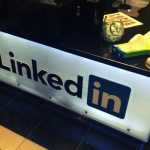 If you are in an active job search, more than likely you will hear about job fairs as a good way to meet employers. That’s true. Job fairs where broad to narrow industries are represented bring employers to you. Most job fair events are designed to give you opportunities to meet employers face to face, a chance to engage in a real, live conversation, even though it might be brief.
If you are in an active job search, more than likely you will hear about job fairs as a good way to meet employers. That’s true. Job fairs where broad to narrow industries are represented bring employers to you. Most job fair events are designed to give you opportunities to meet employers face to face, a chance to engage in a real, live conversation, even though it might be brief.
Half the challenge in searching for a good job is meeting people in person to talk about their hiring needs and your experience. Yet some people find job fairs helpful while others leave without real leads and that’s true with any type of networking event where potential employers are present.
The key to making a job fair work for you is planning and being selective. A good job fair will advertise the industries represented as well as specific employers, but not every event will match your background. Taking the time to research the companies and requirements before you attend will help make your time more effective.


